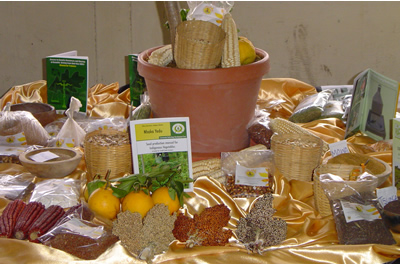We need more writers like Chris Kabwato. Every week he shares a refreshing and provocative take on Something. This week it’s leadership. Seen any in Zimbabwe lately? Thought not.
In search of a leader
AN ANCIENT text tells me the following:
A man will seize one of his brothers at his father’s house and say “You have a cloak, you be our leader; take charge of this heap of ruins.” But in that day he will cry out, “I have no remedy…do not make me the leader of the people.”
Now I am hoping as Zimbabweans we shall not end up having to choose a leader of the basis of what English writer Thomas Hardy’s observation that “aspects are within us, and who seems most kingly is the king”. I mean could we choose someone walking down Samora Machel Avenue to lead us just because we liked that person’s beige suit, purple shirt and matching tie. Surely we demand much more of those that would lead us?
In all the current heat around who is and is not a leader we should confront the frightening reality that we face a dearth of leadership in all spheres – politics, business, religion, civil society and the unions. We remain underwhelmed by a leadership that is divisive, uninspiring, confusing, contradictory and unstrategic. Where then is the leadership that will understand that Africa is on the brink of a fundamental economic and social transformation and thus will make those earth-shattering vision statements that will galvanise us towards a common cause? Where is the leadership that will make us re-imagine Zimbabwe? Who will rise above the bigotry of patriarchy, tribalism and racism?
Those that wish to lead should put their houses in order and those homes are the political parties, government, the private sector, the universities and colleges, the unions, the civil society organisations, the churches and the student movement.
In our political parties there is no culture of robust debate – that necessary contestation of ideas that moves a nation forward. You read through manifestos and congress resolutions and you are amazed at the hotchpotch of uncritical statements strung together in the language of overzealous college students. You listen to their message and you wonder at the lack of coherence. In the case on one party how are they able to issue four different statements on a single issue? Does anyone there understand Communication 101? Or just the basic principle of disciplining the message? But is there a coherent message in the first place?
Civil society’s debacles at the SADC summit last month should have provided an occasion for a frank re-assessment of our supposed collective vision. There we were in Sandton chasing one whisky after the other – waiting for the superheroes to come from Harare and give direction. Those sent ahead had no clue where to begin. Needless to say the end-result was a Tower of Babel – a symphony of cacophony that exposed the faultlines in our supposed single goal of creating a democratic Zimbabwe.
For now it is back to what we know best – self-aggrandisement, grandstanding, competition for resources, duplication of efforts and the usual 3-year strategies tied to donor strategies. Still there is a slight possibility that those activists that still have any principles will ask how we it will be possible to give birth to a new reality when we are locked into constantly shifting external funding strategies. How can we change the political, economic and social edifice of Zimbabwe when we have no sustainable frameworks that inform our vision beyond parroting the usual refrains of good governance outside of the wider context?
On the other hand, I do not know how many young people in civil society today would say they are being mentored or groomed for leadership. Many wallow under the tyranny of the founder-director – of people who are so insecure they see conspirators in every nook. We have chairpersons of organisations who assume executive powers and destroy the potential of people. We have appointed directors of organisations who could never be able to organize a birthday party for a three year old that wishes to invite six friends.
In business we confront the usual same old clique – brilliant at managing businesses they inherited and not great at fostering creativity and innovation. They shout from the rooftop on how the state should protect their shoddy products and services from foreign competition. They don’t invest in the ideas of a younger generation – there is, after all, golf, whisky and “small houses” to take care of. To add salt to injury, those that we thought represented a new generation of entrepreneurs have turned out to be merely a little bit more sophisticated in their thieving than your regular pickpocket at Mbare Musika.
If Charles Mzingeli, that gallant trade unionist of the 1930’s to 50s were to rise from the grave what would he say about the state of trade unionism in our teapot-shaped nation? Would he use the same excuses of decimation of the worker base and the ravages of the last decade to explain the retreat by the unionists from their historical role and giving up space to political and educated elites? Would Mzingeli see in the perennial schism of elites and workers the very battle he had against nationalist leaders like George Nyandoro?
In grappling with the challenge of producing leaders and ensuring there is a successor generation we have tried the route of leadership academies, of books and more books on the subject (Deepak Chopra, Rudy Giuliani, Bismarck, even Alex Ferguson) and countless one day events where you pay top dollar to be told what you already knew. Some have remained in the trenches – the unions and the student movement. But the question remains nagging: where are the fruits of that knowledge and experience?
We need kenge “superheroes” and superheroes to come of their hiding places and speak their minds without fear of being labelled by powerful elites.
Leaders should lead.











